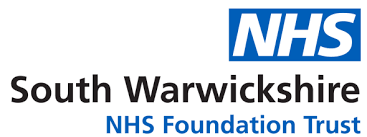4 mins read

UKAS spoke to Laura Turton of South Warwickshire NHS Trust about their accreditation and what it means to them.
Related topics
The audiology department of South Warwickshire NHS Foundation Trust is required to be working towards UKAS accreditation and has now achieved accredited status to the IQIPS standard.
UKAS spoke to Audiology Manager at the trust, Laura Turton, about their choice to embark on this demanding project and their journey to accreditation.
Why gain accreditation
“It was seen as essential for us to achieve UKAS accreditation because the other West Midlands trusts have this in place, and we needed to reflect the same standard of care.
The biggest challenge was ensuring we were taking the staff with us on this journey and getting employee buy-in. We appreciated that the assessment process would be time consuming and impact on their workload, so it was important that they understood our reasoning and the benefits it would bring.
Meeting the challenges
In order to manage this challenge we provided a lot of training ahead of the first assessment to enhance understanding of what was relevant to patient experience and safety. We also carried out several mock assessments.
We introduced the process of having two huddles a week, something that we have retained post-assessment to allow staff to communicate and maintain awareness of frequent changes. We did this because a monthly staff meeting would be insufficient and too long if this were to cover all the updates. These huddles are also minuted, providing plenty of evidence that the correct information is passed to staff, which is needed for our accreditation.
UKAS also helped with our preparation by carrying out a pre-assessment visit. On this visit the Assessment Managers were able to explain how we could provide sufficient evidence that we were meeting the standard.
The assessment process in times of COVID-19
The surveillance assessment was carried out to the IQIPS v 1 standard and we have a further visit scheduled in July 2021, after which we will transition to the new v2 standard.
The surveillance was carried out remotely, which was a lot less stressful than I had imagined and actually worked very well.
Our assessors were really flexible and accommodating. The sharing document also worked well and was easy to use. I felt that the whole assessment process fitted around the service too.
Regardless of whether assessment is carried out face-to-face or in a remote setting, UKAS assessors have always been very collaborative and provided we could still interact with our Assessment Manager, we would be open to a blended approach going forward.
Feeling the benefits
In terms of the benefits of achieving accreditation to the IQIPS standard, I would say there are quite a few.
Patient Participation Groups representing the interests of our wider patient community love that we are accredited and like to see the reports and feedback that stem from our assessments. We also highlight our accredited status on all the letters that go out to patients as we believe it increases confidence in the service.
For me the greatest benefit of our accreditation is that it encourages the department to continually examine and re-examine processes. This helps us to be innovative and ensure that what we do is always the best from a patient care perspective.
I actually enjoy the challenge of change and am proud that we have demonstrated that a small audiology department such as ours can meet the same standards as a much larger hospital. It has also given greater confidence to the staff in the department as much as the patients that rely on the service.
I would like to thank our assessors who were all really accessible and open to being contacted if we had a question, which certainly made the whole process less stressful and daunting.”
Laura Booth, Senior Assessment Manager for IQIPS at UKAS congratulated Laura and her team for their achievement:
“Thank you for your hard work in achieving this important step on your accreditation journey. It is important that smaller trusts like South Warwickshire can be confident of meeting global standards and are working towards continuous improvements for the benefits of all the patients in their care.”